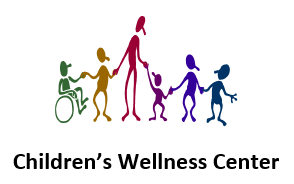Preventative Child Care
Preventive child care is any medical care designed to prevent problems before they arise or to catch issues as early as possible so they are more easily treated. Examples include immunizations to prevent dangerous infectious diseases, vision screening, monitoring growth and development, as well as screening for iron deficiency, lead poisoning, and tuberculosis.
At Children’s Wellness Center we do well visits, school and sports physicals, and asthma checks.

Our Preventative Child Care Recommended Schedule
For newborns, we want to see them frequently: at 2 weeks, 1 month, 2 months, 4 months, 6 months, 9 months, 12 months, 15 months, 18 months, 24 months, and 30 months.
After that, we want to see our patients annually from ages 3 to 18 years.
What We Do In A Well Visit
While it depends on the age of your child and your child’s individual situation, our well visits generally follow these guidelines:
At every well visit:
- Child’s history and family history
- Complete physical exam
- Check weight, height, head circumference (in infants), BMI (in older children)
- Screen development in younger children and any school concerns in older children
- Screen for lead poisoning, iron deficiency, tuberculosis if age appropriate
- Review any concerns the patient or their family has
- Provide a growth and development guidance handout, which includes assistance on developmental milestones, nutrition and feeding advice, and safety concerns
At certain milestone ages:
- Screen for autism at 18 and 24 months old
- Screen vision annually from 1 – 6 years old
Give your child the best possible care
Well visits are very important to give your child the best possible care. At each checkup weight, height and all vitals will be taken by our medical assistant; as well as your child’s history and family history. Your medical provider will do a full examination and provide you with a growth and developmental guidance handout. Please refer to the handout for assistance on developmental milestones, nutrition and feeding advice, as well as safety concerns.

